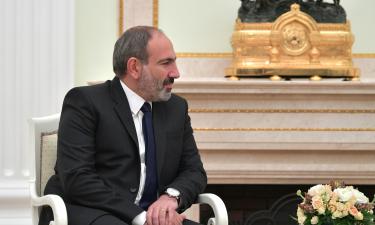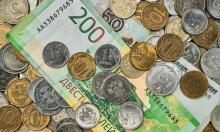Greenspan says U.S. economy on reasonably firm ground
Federal Reserve Chairman Alan Greenspan said Thursday that the U.S. economy seems to be on a "reasonably firm footing," with inflation under control.
In his most extensive remarks on the state of the economy since February, Greenspan said that a recent uptick in economic indicators showed the soft readings of the early spring were not signaling a more serious slowdown in the pace of activity.
Greenspan's generally upbeat assessment of the economy provided support for the view that the Fed, which has raised interest rates eight times over the past year, planned to continue nudging rates higher at a gradual pace.
"The U.S. economy seems to be on a reasonably firm footing, and underlying inflation remains contained," Greenspan said in remarks to the congressional Joint Economic Committee.
Greenspan said because of this the Fed was able at its last meeting to repeat a pledge it has been making for the past year that it will be able to move rates higher "at a pace that is likely to be measured."
Fed policy-makers next meet on June 29-30 and it is widely expected that the Fed will raise a key short-term rate, the federal funds rate, by another quarter-point to 3.25 percent at that time.
Many analysts believe that the Fed will keep raising rates by a quarter-point at later meetings this year, but others think the Fed may decide to pause in the rate hikes later in the summer or early fall.
Greenspan, however, gave no hint that the Fed is ready to pause in its rate hike campaign.
He said that the economy has "alternately paused and quickened" this year, fluctuations that he blamed in large part on the rise and fall in energy prices.
"Despite the uneven character of the expansion over the past year, the U.S. economy has done well, on net, by most measures," Greenspan said.
Greenspan said that overall economic growth, as measured by the gross domestic product, has grown at a healthy pace of 3.7 percent over the past year, helping to push the unemployment rate down to 5.1 percent in May, the lowest level since September 2001.
Greenspan said one of the "biggest surprises of the past year" has been the performance of long-term interest rates. The 10-year Treasury note is now around 4 percent, down from 4.8 percent when the Fed started raising short-term rates in late June 2004. Since that time, the funds rate has been pushed from a 46-year low of 1 percent to the current level of 3 percent.
This divergence between short-term and long-term rates "is clearly without recent precedent," Greenspan said.
The drop in long-term rates has fueled a boom in home sales and increases in home prices. But Greenspan repeated his view that he doesn't believe there is a national housing bubble. He said, however, there could be some "froth" in local markets.
MARTIN CRUTSINGER, AP Economics Writer
Subscribe to Pravda.Ru Telegram channel, Facebook, RSS!





